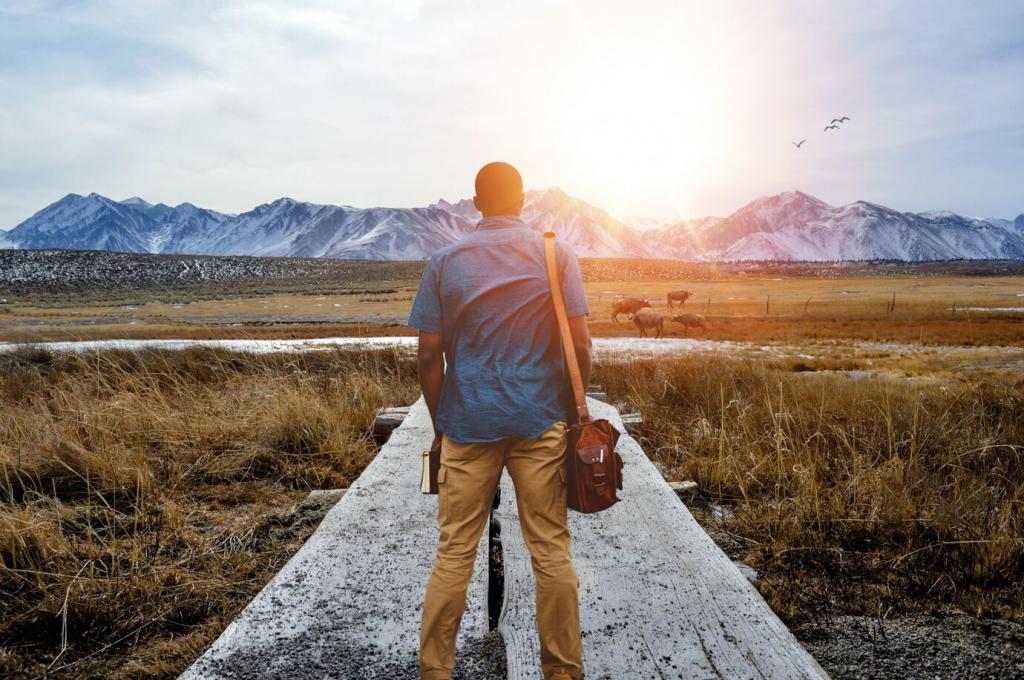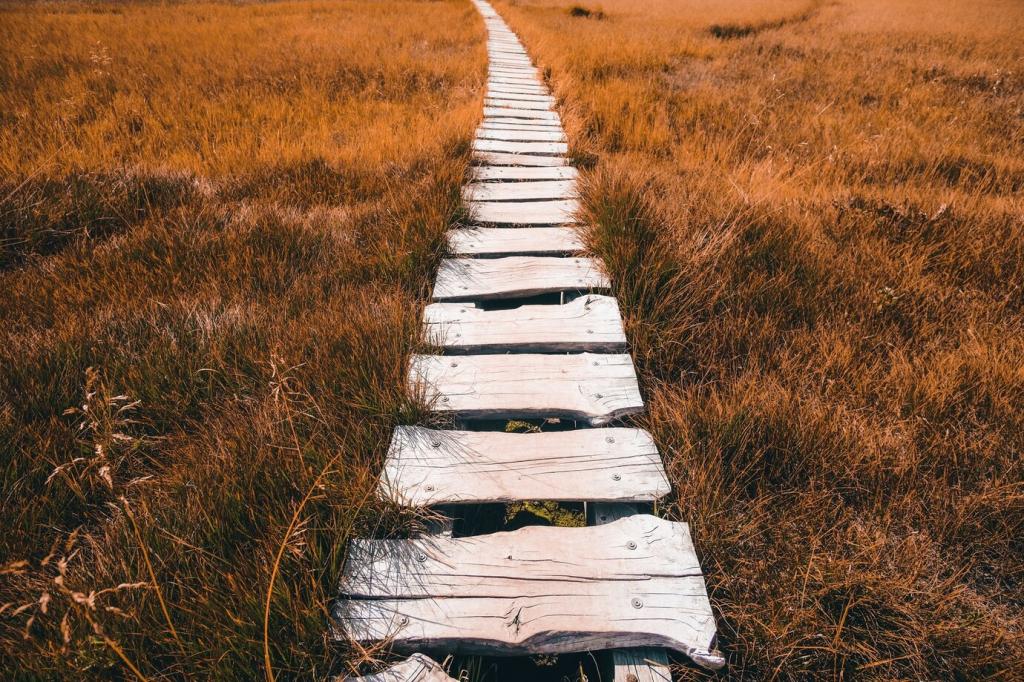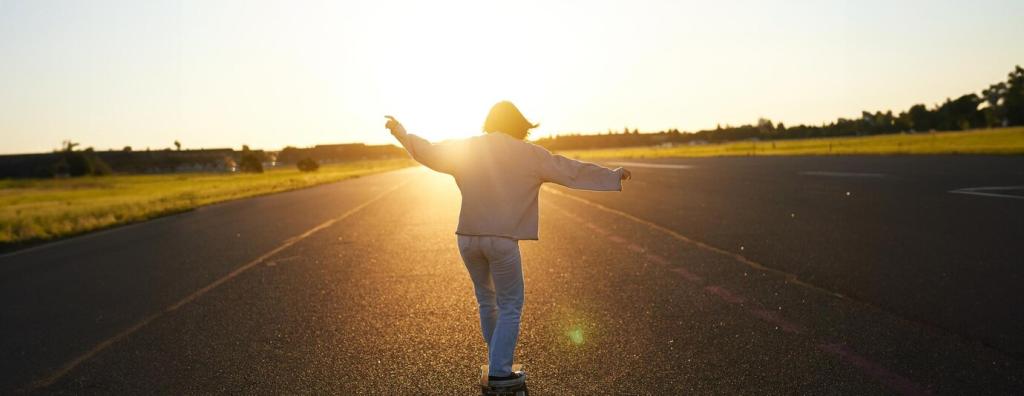Impactful Travel: Making a Difference on Your Journey

From Tourist to Participant
Being a participant means arriving with humility, listening before acting, and engaging beyond curated highlights. It looks like asking better questions, learning context, supporting local leadership, and letting your plans bend toward what is needed rather than simply what is convenient.
Setting Intentions Before You Book
Write three intentions—one social, one environmental, one personal—before choosing dates or lodging. Maybe it is learning a local craft, riding trains instead of planes, or meeting a community guide. Post your intentions for accountability and invite a travel buddy to keep you honest.
Choosing Destinations Responsibly
Consider seasonality, carrying capacity, and who benefits from your stay. Pick places where your presence supports recovery, disperses crowds, or uplifts local stewardship. Research community-led initiatives and favor regions where your money and time can strengthen existing, locally defined efforts.
Building Genuine Community Connections
Homestays and Local Guides
Choose community-run homestays and guides with roots in the neighborhoods you visit. Ask how income is shared and what cultural protocols matter. A tortilla workshop in Oaxaca changed my approach to tipping after understanding the hours behind each handmade stack. Stories deepen respect.

Lowering Your Environmental Footprint
Favor trains, buses, and non-stop flights when flying is unavoidable. Pack lighter, consider economy class to reduce per-seat emissions, and cluster destinations. Many rail journeys offer dramatically lower footprints than short flights while revealing landscapes you would otherwise only skim over from above.


Lowering Your Environmental Footprint
Carry a refillable bottle, filter, metal utensil set, fabric tote, and solid toiletries. Mark refill stations on an offline map. In Cebu, a tiny café welcomed my bottle with a smile and a refill. Share a photo of your kit to inspire others.
Ethical Wildlife and Nature Encounters
How to Vet Sanctuaries
Beware of facilities allowing selfies, rides, or cub handling. Seek rescue centers that prohibit contact, limit visitors, and publish veterinary and funding details. A pangolin rehab I visited banned photography to reduce stress, proving that ethics often require fewer pictures and more patience.
Leave No Trace, Everywhere
Stay on durable surfaces, pack out all waste, and respect wildlife distance. Learn local variants—tide timing on coasts, cryptobiotic soil in deserts. Quiet observation often yields richer moments than pursuit. Pledge one Leave No Trace practice you will apply on your very next outing.
Citizen Science on the Road
Join reef monitoring, bird counts, or plant surveys through reputable platforms. Follow data protocols and protect sensitive locations by disabling exact geotags for rare species. Each respectful observation builds knowledge that informs conservation, proving travelers can be allies without disturbing fragile rhythms.
Spending With Purpose
Look for independent guesthouses, community cafés, and cooperatives. Ask who owns the business and who sets wages. Book directly when possible and tip fairly. A roadside mechanic once saved my cycling day; paying his rate felt like fueling the whole ride forward.
Volunteering, Wisely
Research whether a project replaces local jobs or strengthens them. Avoid orphanage tourism and short-term construction for photos. Look for training, background checks, supervision, clear objectives, and exit plans that ensure benefits remain when travelers leave and normal routines resume.

The Slow Travel Mindset
Designing Rail-and-Rooted Itineraries
Anchor yourself in one neighborhood for a week, exploring by train, bike, and foot. Stack micro-escapes instead of border runs. Slowing down invites conversation with bakers, bus drivers, and librarians—the everyday storytellers who reveal a place’s heartbeat.
Rituals that Build Belonging
Create a daily ritual: a dawn café, an evening jog, or volunteering at a community garden. Rituals nourish relationships and invite responsibility. Over time, you stop checking boxes and start noticing seasons, routines, and names that welcome you back tomorrow.
Mindful Screens and Senses
Limit screen time by downloading offline maps, scheduling brief check-ins, and embracing analog note-taking. Swap endless scrolling for neighborhood walks and listening sessions. Try a ten-minute sensory journal each night and share one insight that changed how you moved the following day.

Measure, Reflect, and Share Responsibly
Keep an Impact Journal
Record who benefited from your choices, what you learned, and what you would change next time. Tally local spending, note conversations, and log accessibility improvements you observed. Share de-identified insights to help others refine their own decisions with care.
Carbon and Offsets, Explained Simply
Estimate emissions using reputable calculators, then prioritize reductions through routing and transport choices. If offsetting, favor independently verified projects with long-term monitoring. Consider contributing to climate justice funds that support communities most affected by the crisis you helped to create.
Storytelling That Centers Locals
Ask permission before posting, credit people by name when safe, and link to their work. Avoid savior narratives. Use captions to share context and resources. Invite readers to subscribe and submit their own responsibly told stories amplifying local leadership and knowledge.
